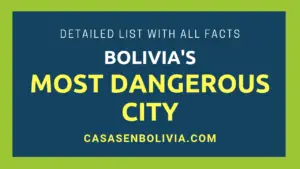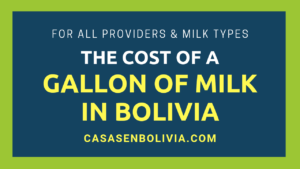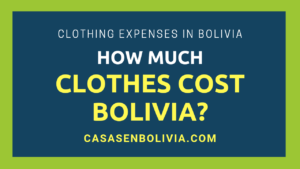Last Updated on February 15, 2025
In Bolivia, approximately 2 million cars are currently on the roads. You’ll find a wide range of brands, mostly from Asia. However, despite the country’s developing status, major, well-known brands like Toyota, Nissan, and Suzuki dominate the Bolivian car market.
The top-selling car brand in Bolivia is Suzuki, accounting for 30% of the total market. Toyota follows, with around 15% market share, and Nissan holds approximately 10%. Dozens of Chinese car brands and Ford also have a significant presence in the market.
In this article, we’ll discuss the top five best-selling car brands in Bolivia, providing details about each one, explaining their popularity over other globally recognized brands, and covering the recent surge of Chinese cars in the country, among other details.
The Top 5 Best-Selling Car Brands in Bolivia (as of 2022)
According to the Bolivian Car Association director (interview: translated) and our own knowledge and experience in Bolivia, the following are the top five best-selling car brands in the country.
1) Suzuki
Suzuki is by far the most popular car brand in Bolivia, with nearly 3 out of 10 cars on the road bearing this brand (roughly 30% market share). As you travel through the cities, you’ll see numerous SUVs, minivans, sedans – generally family cars and city vehicles – from this brand everywhere. However, for other vehicle types, such as trucks, pickups, taxis, and buses, other brands like Ford and Toyota are more prevalent.
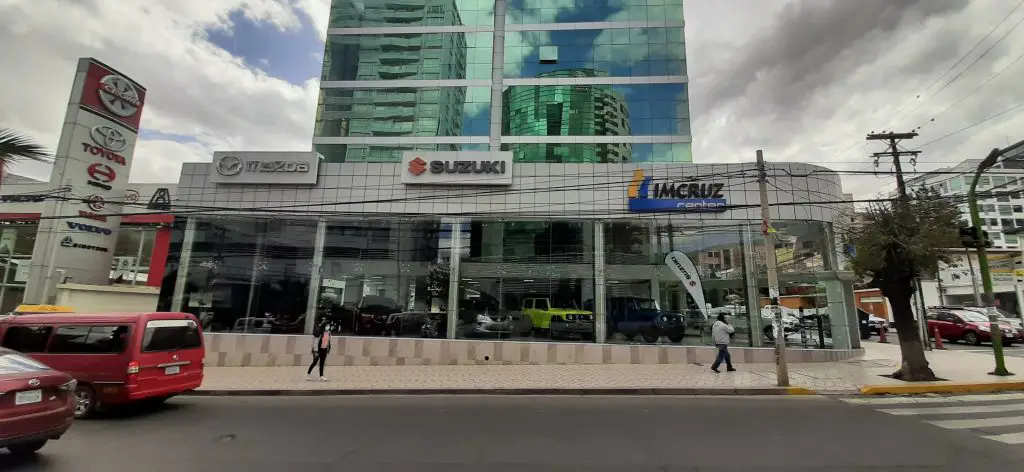
Suzuki, which notably isn’t present in the US market, is the preferred car brand in Bolivia due to its affordable prices (typically 20% to 30% less expensive than comparable brands), widespread availability of spare parts, numerous dealerships across the country, and many repair shops. However, it also offers significantly lower quality compared to the average car in a developed country.
Bolivians favor Suzuki primarily for its affordability. The cars from this company are also designed for the Bolivian market, with less advanced technology, lower-quality materials, reduced safety features, etc. (Bolivian laws don’t have stringent requirements in these areas). This results in *a more affordable price* and a design better suited to more rugged and rural terrains.
Suzuki is currently distributed by Imcruz in Bolivia, one of the leading car dealerships operating in the country.
2) Toyota
Toyota is the second most popular car brand in Bolivia (with *approximately 15% market share*) due to its reputation for quality and extensive support network across the country. Bolivians who prioritize quality over price generally opt for a Toyota. This brand also maintains good resale value, even after 10-15 years, with key used models rarely falling below $5,000.

Toyota also offers a wide variety of models in the country, but it’s particularly popular for sedans, hatchbacks, minivans, pickups, SUVs, and compact cars. Toyota’s Hilux, Corolla, Rav4, Agya, and 4×4 models are ubiquitous. *High-income Bolivians consistently prefer to purchase a Toyota whenever possible*, recognizing its quality.
Toyosa is the exclusive car dealer for Toyota in Bolivia and has been repeatedly recognized as one of the best and largest companies in the country. *However, it’s important to note that Toyota cars here are not of the same quality as those in developed countries*. Most of the cars imported here are manufactured in Mexico, India, etc., rather than in the US or Japan.
3) Nissan
Nissan also enjoys significant popularity in Bolivia. It offers widespread availability of spare parts and repair shops throughout the country. It’s a well-established brand here, having maintained that status for at least three decades. Nissan vehicles are considerably more affordable than similar global brands like Toyota or Ford, while still providing a good balance of cost and quality.
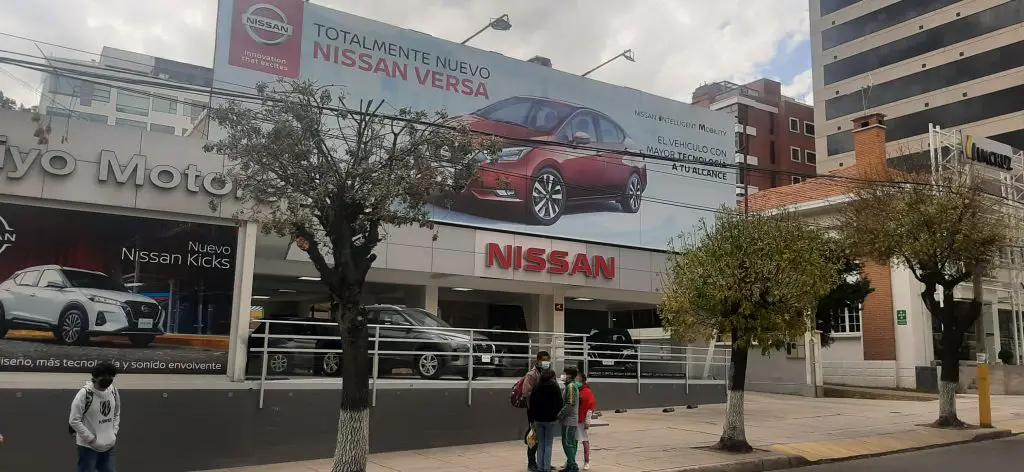
This brand currently *holds around 10% of the Bolivian car market* and offers a variety of models, distributed through its own dealerships located within the country. (Note: Corrected the market share to 10% to reflect your earlier statement, and corrected the name of the dealership.)
4) Chinese Brands
Since 2010, imports of Chinese cars have steadily increased, to the point that *these brands now represent nearly 10% of the car market share*. There are numerous Chinese car brands circulating within the country, with several dozen currently available.
Bolivians tend to purchase these cars because they are less expensive, approximately 30% cheaper than Toyota, for example. However, these cars generally have lower quality, and their resale value depreciates rapidly each year. They also lack a robust support ecosystem across the country, and finding spare parts for these brands can be more challenging. Consequently, their market growth has stagnated in recent years.
5) Ford
In Bolivia, Ford is preferred over other brands for more specialized vehicle types, such as trucks, vans, and 4x4s, *due to its perceived quality*. It comprises *around 3% to 5% of the total market share* and has established a strong reputation in Bolivia. Bolivians often perceive this brand as offering excellent quality for non-mainstream models.
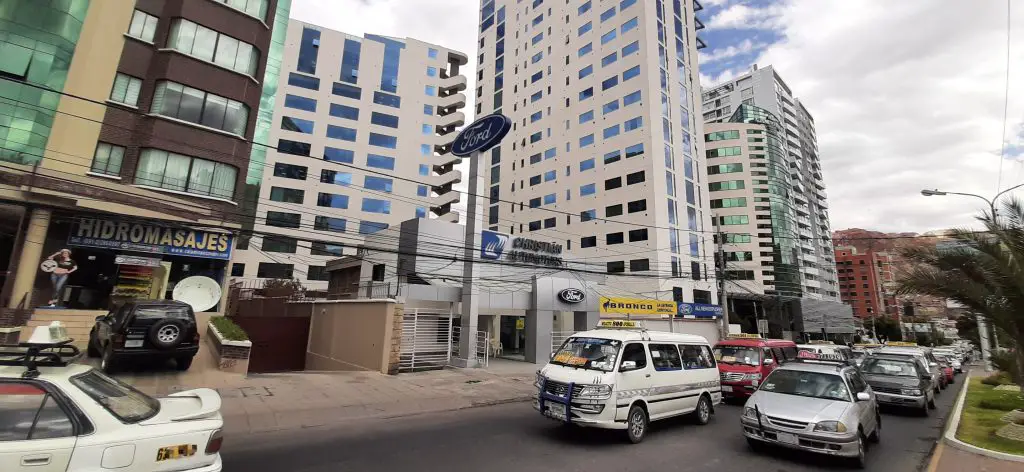
Additionally, this brand maintains a good resale value in the country and provides reliable support regarding spare parts and repair shops.
The Most Popular Car Type in Bolivia
In Bolivia, most roads and highways are not in optimal condition, with many unpaved roads, potholes, rocky surfaces, and extensive rugged terrain, valleys, canyons, and rural areas. Consequently, Bolivians tend to prefer vehicles with more powerful engines and versatile capabilities, suitable for these types of roads and terrains.
Another factor Bolivians consider when choosing a car is their income. Most families, even affluent ones (earning over $1,500/month), cannot afford to purchase more than one vehicle. Therefore, they need a vehicle that can serve various purposes, including work, family use, and travel.
For these reasons, most city cars, sedans, and compact cars are not the most popular choices. *Instead, the most sought-after options are SUVs, pickups, minivans, and family cars*.
We have a comprehensive guide detailing the most common car models and types in Bolivia, including their advantages, disadvantages, and why they are preferred: [Link].
Identical Car Brands Don’t Necessarily Have the Same Quality in Bolivia
To sell units within the country, major car brands like Toyota, Ford, Honda, and Nissan *must lower their car prices*. Bolivian import taxes are close to 30%, *and with additional fees, they can be even higher*. For example, a car manufactured in the US might cost $25,000 in that country. However, to import this same car to Bolivia, you would end up paying around $33,000, making it nearly impossible to sell to Bolivian consumers.
To address this, the car needs to cost around $25,000 in Bolivia, *including* all taxes and additional import fees. To achieve this price point, *car companies reduce the quality of their vehicles*. Therefore, in Bolivia, you’ll find that most cars from Toyota, Ford, Nissan, etc., *are manufactured in countries like Brazil, Mexico, or India*, rather than Japan, Canada, or the United States.
Consequently, in Bolivia, you’ll receive a car with significantly lower quality than in developed countries – *a car designed for developing countries* like Bolivia, offering reduced overall functionality in terms of safety, technology, lifespan, etc.
If you want to purchase a car in Bolivia with the same quality as in the US or Europe, you’ll need to buy from specialized car dealerships, but they will charge you 30% to 50% more for this car than its price in the US.
Conclusions:
In this guide to the top-selling car brands in Bolivia, you’ve learned that three well-known brands dominate the majority of the car market: Suzuki, Toyota, and Nissan. Following these, dozens of Chinese brands and Ford also have a presence.
Suzuki leads with approximately 30% market share, offering affordability and good quality. Toyota is preferred for its recognized quality and extensive support network across the country, holding around 15% of the market. Finally, Nissan, a classic and well-established brand in Bolivia, offers a good balance of cost and quality, with around 10% market share.
You’ve also seen that after these three car brands, numerous Chinese brands collectively make up around 10% of the car market. Finally, in fifth position is Ford, with approximately 3% to 5% of the market, serving as the preferred brand for non-mainstream models due to its perceived quality and strong reputation in Bolivia.
We hope this information has been helpful. If you’d like to learn more about car prices in Bolivia, including details on different brands, gasoline costs, rental options, etc., please visit our dedicated guide here: How much does a car cost in Bolivia? All the facts and numbers.
CasasenBolivia.com, information on living, working, investing, and traveling in Bolivia.





